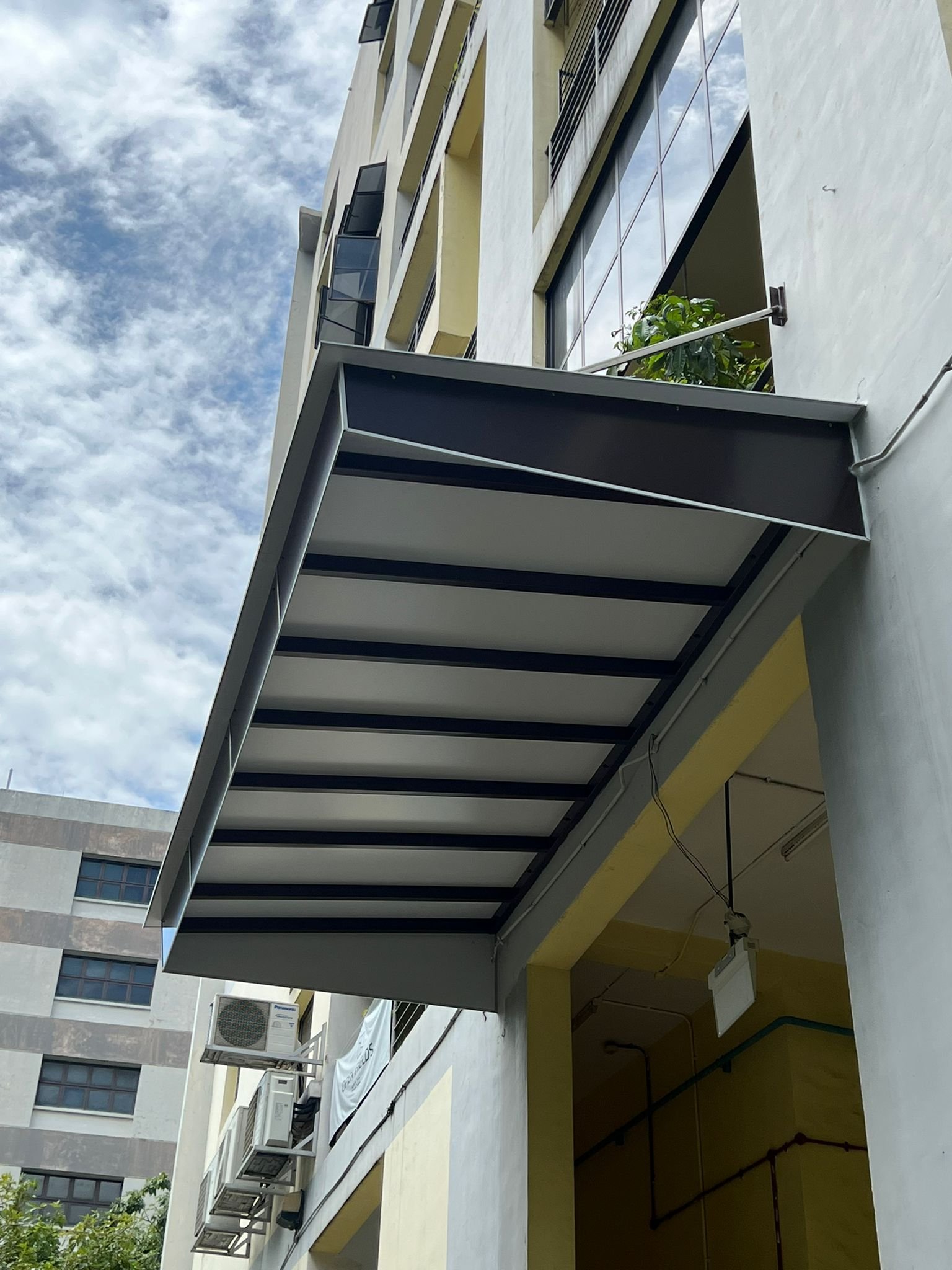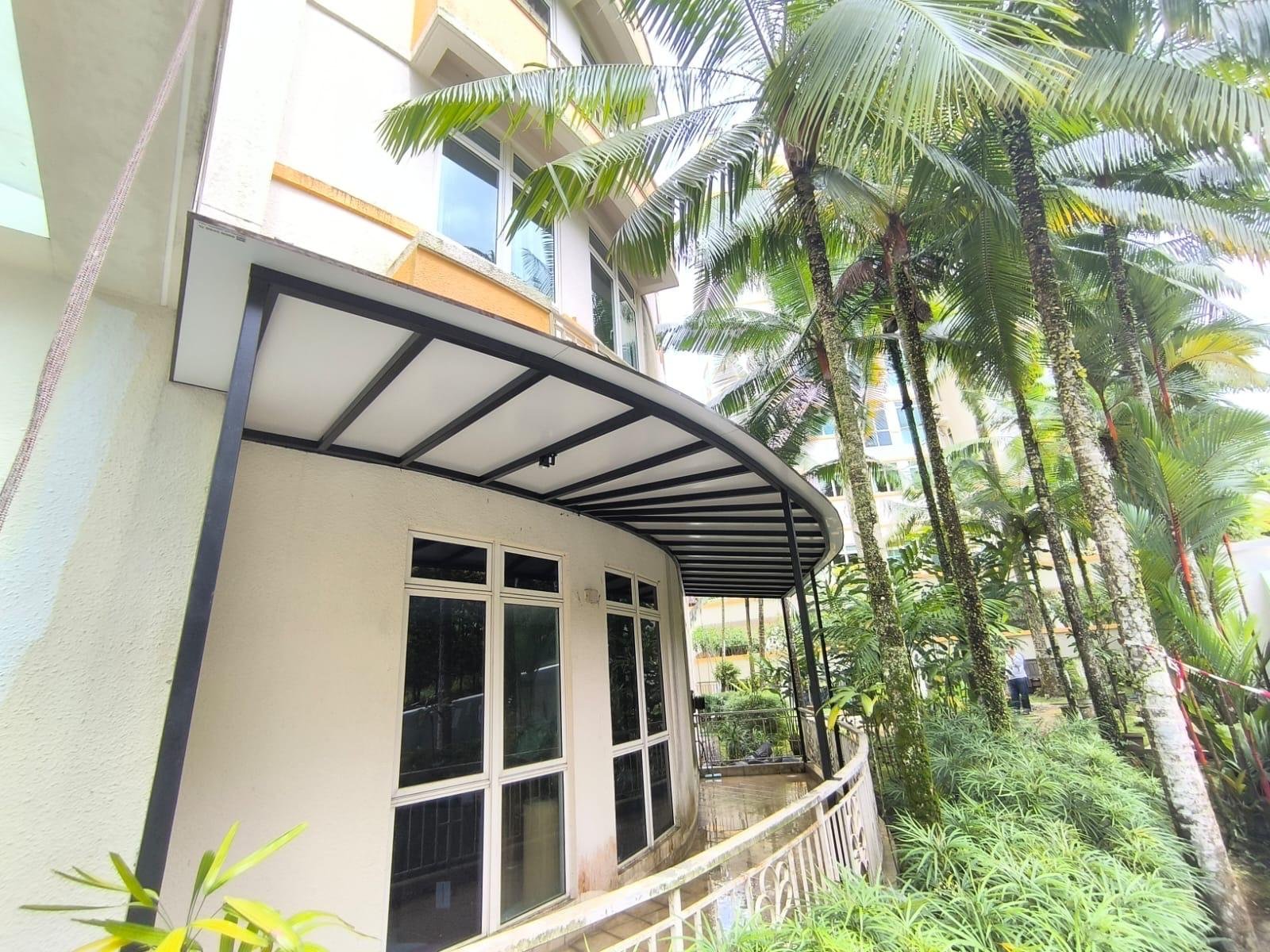Unknown Facts About The Secret Of Awning
Table of ContentsSome Known Factual Statements About The Secret Of Awning Roofing, Shades, And Awnings In Singapore - Questions Roofing, Shades, And Awnings In Singapore Can Be Fun For Everyone Roofing, Shades, And Awnings In Singapore - The Facts Roofing, Shades, And Awnings In Singapore Mean? Roofing, Shades, And Awnings In Singapore Roofing, Shades, And Awnings In Singapore
A professional material author, C.E. has actually covered all points home, household, and wellness for a range of magazines, including HomeLight, Noodle, and Mimi. A third-generation Los Angeleno, she is constantly seeking means to make the most of the sun, whether it be building a metropolitan yard or embellishing with the help of some low-maintenance, air-purifying plants.
, and shielding from rainfall or snow.
Awnings were first utilized by the old Egyptian and Syrian worlds. They are referred to as "woven floor coverings" that shaded market delays and homes. A Roman poet Lucretius, in 50 BC, stated "Linen-awning, extended, over magnificent theaters, provides forth at times, a splitting roar, when much't is beaten around, between the poles and cross-beams".
Roofing, Shades, And Awnings In Singapore
(https://businesslistingplus.com/profile/dscrtofawn1ng/)Made of bed linen shadecloths, hardwood framing, iron sockets and rope, the system might effectively shade about one-third of the arena and seating; an additional third might be shaded by the high bordering wall surfaces, giving a majority of seats some shade on a blinding mid-day.
At that time they consisted of hardwood or cast iron posts established along the pathway side and linked by a front cross bar. To provide support to larger installations, angled rafters linked the front cross bar to the structure exterior. The top end of the canvas was connected to the facade with nails, with grommets and hooks, or by tiing the canvas to a head rod bolted to the exterior.
On luxuriant instances, steel blog posts were adorned with filigree and the tops embellished with spear ends, spheres or other embellishments. On cloudy days or when rainfall did not intimidate, the covering was commonly rolled up against the structure exterior; during the winter season months correct upkeep called for the elimination and storage space of awnings.
The Basic Principles Of The Secret Of Awning
Canvas duck was the predominant awning textile, a strong, closely woven cotton towel used for centuries to make camping tents and sails. Awnings came to be a typical feature in the years after the American Civil War. Iron plumbing pipeline, which was swiftly adjusted for awning structures, ended up being widely offered and economical as an outcome of mid-century industrialization.
At the same time the advent of the steamship forced canvas mills and sail makers to browse for brand-new markets. An awning market developed offering a selection of structure and fabric alternatives adaptable to both storefronts and home windows. Awnings over windows In the second half of the 19th century, manufactured operable awnings expanded in popularity.
The Secret Of Awning
Operable systems for both shop and home window awnings had expansion arms that were hinged where they joined the facade. The arms were decreased to predict the awning or increased to pull back the awning making use of straightforward rope and pulley-block setups. Because the canvas remained affixed to the framework, retractable awnings enabled an extra versatile strategy to shading (storekeepers and proprietors can incrementally readjust the amount of awning coverage depending upon the weather).

The Secret Of Awning
Modern materials and designs have actually eliminated all of these concerns. Retractable awnings allow proprietors manage the weather on their very own terms.
Instead, they have pulling back lateral arms, producing an unblocked shaded area. These awnings are operated by an electrical motor, usually concealed inside the roller bar of the awning. The arms open and close the awning at the touch of a cordless push-button control or a wall-mounted switch. Modern awnings might be created with covers of various sorts of textiles, aluminium, corrugated fibreglass, corrugated polycarbonate or other products.
Roofing, Shades, And Awnings In Singapore
Modern awnings are rated for wind tolerance based on width, length, number of supporting arms, and material. Such designs are currently in use at the White Residence, Grand Central Station, and the Kremlin.
They are readily available in many shades and are generally painted with a baked-on enamel paint. Among the several benefits of these awnings are cooler temperature levels inside the home, shade for your outdoor patio, expanding the life of furnishings and home window therapies. Potentially one of the most advantageous feature of the awnings are the truth that they have a useful life of more than 40 years.
Roofing, Shades, And Awnings In Singapore
